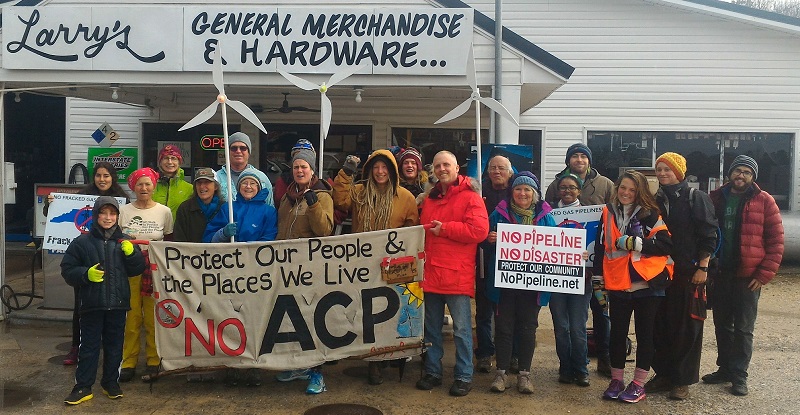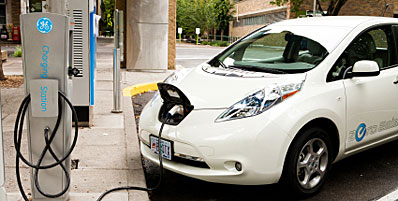At the beginning of 2020, no one expected that a pandemic would cause worldwide disruption and division. But as Cynthia Satterfield, acting state director of the N.C. Chapter, wrote in May, “Near isolation forced by COVID-19 has laid bare our core values and we have needed nature more than ever to sustain us.”
That's why we've spent this year together in spirit, keeping our focus on advocating for justice and the environment. The pandemic stopped the Chapter's volunteers and staff from celebrating our 50th anniversary as part of one of the oldest and largest environmental groups in the world. But it didn't slow our momentum.
 One of the biggest victories we saw this year was the cancellation of the Atlantic Coast Pipeline (ACP). This controversial fracked gas project would have harmed public health and water quality, and significantly contributed to climate change.
One of the biggest victories we saw this year was the cancellation of the Atlantic Coast Pipeline (ACP). This controversial fracked gas project would have harmed public health and water quality, and significantly contributed to climate change.
Grassroots Sierrans rallied their communities to demand that the pipeline be cancelled and the Sierra Club fought the project in court - double-teaming that's a go-to Sierra Club strategy.
Caroline Hansley and Joan Walker, organizers with the national Beyond Dirty Fuels campaign, and the N.C Chapter's lobbyist Cassie Gavin were instrumental in the effort. Our local Groups and volunteer leaders as well helped us team up with environmental and social justice allies to fight the pipeline. The cancellation, blamed on the project's skyrocketing cost, was a huge win for North Carolinians’ wallets, health, and environment.
Much of our Chapter's work - and resulting successes - in recent years can be attributed to a team effort of N.C. Chapter volunteers and staff joined by national Sierra Club staff, deployed in the state to support regional and national campaigns like Beyond Dirty Fuels.
The Beyond Coal campaign, led in North Carolina by Southeast Deputy Regional Director Dave Rogers in Durham and Senior Campaign Representative Will Harlan in Asheville, continued to press for the closing of costly, dirty coal plants - securing the closure of two of the worst in the state in 2020.
Beyond Coal continues to press the N.C. Utilities Commission to prevent Duke Energy from passing along coal ash cleanup costs to ratepayers.
The campaign also played an important role in the N.C. Utilities Commission's recent approval of a $25 million electric vehicle pilot project for the state.
Rogers and Gavin, along with other Sierra Club staff and volunteers, participated in stakeholder groups to advise and support implementation of the state's Clean Energy Plan.
 Right now, the N.C. Chapter is helping local communities to electrify their government fleets; for those that have passed resolutions committing to 100 percent clean energy plans, it's an efficient and affordable way to start progress towards their climate goals. We're supporting the N.C. Department of Administration as it leads electrification of the state fleet, and encouraging the N.C. Department of Transportation to consider replacing aging ferries with electric models.
Right now, the N.C. Chapter is helping local communities to electrify their government fleets; for those that have passed resolutions committing to 100 percent clean energy plans, it's an efficient and affordable way to start progress towards their climate goals. We're supporting the N.C. Department of Administration as it leads electrification of the state fleet, and encouraging the N.C. Department of Transportation to consider replacing aging ferries with electric models.
As part of the Sierra Club's Ready for 100 campaign, we continue to work with activists who want their local governments to pass 100-percent renewable energy resolutions. Twenty-seven communities statewide have taken that step so far.
The Ready for 100 campaign focuses on adoption of resolutions as well as implementation of plans to meet the goals. Chapter organizers Blake Fleming in Raleigh and Rosa Hodge-Mustafa in Charlotte engaged with communities and partner groups to organize for and support renewable energy resolutions.
This teamwork was essential in one of the latest communities to commit to a renewable energy future, Winston-Salem. Gus Preschle, a member of the Foothills Group, helped lead the campaign.
 “The Forsyth County Clean Energy Resolutions Coalition, which I chaired, found it very challenging to get the attention of the City Council members during the pandemic, but our persistence paid off," he said. "The strategy to get it adopted was supported by encouragement, research and accomplishments of Sierra Club members and staff working in communities across the state."
“The Forsyth County Clean Energy Resolutions Coalition, which I chaired, found it very challenging to get the attention of the City Council members during the pandemic, but our persistence paid off," he said. "The strategy to get it adopted was supported by encouragement, research and accomplishments of Sierra Club members and staff working in communities across the state."
Another big win this year was getting the state to set first-ever rules for the use of methyl bromide, a toxic chemical that threatens human health and the environment. Erin Carey, the N.C. Chapter's director of coastal programs, worked with local activists in communities such as Delco over the past two years to demand regulatory oversight for the use of methyl bromide, which is used as a fumigant for lumber before it's shipped overseas. In November, the state approved rules that will help protect the mostly rural, eastern communities where fumigation occurs.
You can count on the North Carolina Chapter of the Sierra Club to continue our work into the new year, the next 50 years and beyond. We thank you for all you've done to help us protect our people and our planet, and we're looking forward to working with you to make 2021 a brighter, happier year for all.